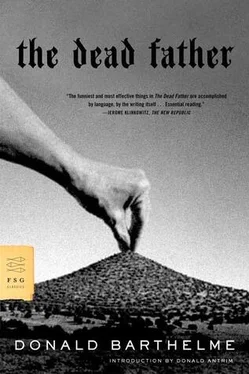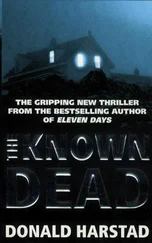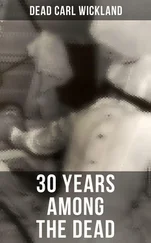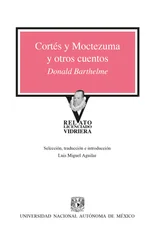Donald Barthelme - The Dead Father
Здесь есть возможность читать онлайн «Donald Barthelme - The Dead Father» весь текст электронной книги совершенно бесплатно (целиком полную версию без сокращений). В некоторых случаях можно слушать аудио, скачать через торрент в формате fb2 и присутствует краткое содержание. Жанр: Современная проза, на английском языке. Описание произведения, (предисловие) а так же отзывы посетителей доступны на портале библиотеки ЛибКат.
- Название:The Dead Father
- Автор:
- Жанр:
- Год:неизвестен
- ISBN:нет данных
- Рейтинг книги:5 / 5. Голосов: 1
-
Избранное:Добавить в избранное
- Отзывы:
-
Ваша оценка:
- 100
- 1
- 2
- 3
- 4
- 5
The Dead Father: краткое содержание, описание и аннотация
Предлагаем к чтению аннотацию, описание, краткое содержание или предисловие (зависит от того, что написал сам автор книги «The Dead Father»). Если вы не нашли необходимую информацию о книге — напишите в комментариях, мы постараемся отыскать её.
The Dead Father
The Dead Father — читать онлайн бесплатно полную книгу (весь текст) целиком
Ниже представлен текст книги, разбитый по страницам. Система сохранения места последней прочитанной страницы, позволяет с удобством читать онлайн бесплатно книгу «The Dead Father», без необходимости каждый раз заново искать на чём Вы остановились. Поставьте закладку, и сможете в любой момент перейти на страницу, на которой закончили чтение.
Интервал:
Закладка:
Always magnificent exceptions, Julie said.
We have cut our fingers with an X-Acto knife and mingled our bloods, the boy said.
Two tiny forefingers with short crusty cuts exhibited.
Did you sterilize the knife? I hope? Julie asked.
We dangled it in the vodka bottle, said the girl. I judged that sufficient.
That would do it, Thomas said.
We will never be parted. I am Hilda and he is Lars. When he is eighteen he is going to refuse to do his military service and I am going to do something so I can be put in the same jail with him, I haven’t thought it up yet.
Admirable, Julie said.
We are together, said Hilda, and will always be. You are too old to know how it is.
I am?
You must be about twenty-six.
Exactly.
And he is even older, she said, indicating Thomas.
Considerably, Thomas admitted.
And he, she pointed to the Dead Father, must be, I can’t imagine. Maybe a hundred.
Wrong, the Dead Father said gaily. Wrong, but close. Even older than that, but also younger. Having it both ways is a thing I like.
All this age fills up your heads, Hilda said. So you cannot remember what it was like, being a child. Probably you don’t even remember the fear. So much of the it. So little of you. The lunge under the blanket.
There is still more of the it than there is of me, said Thomas. But one gets along reasonably well.
Reasonably, said the girl, what a word.
The children began caressing each other, with hands and cheeks and hair.
Do we have to witness this? asked the Dead Father. This gross physicality?
You are in a new world, Thomas said. Nine-year-olds are arrested for rape. This is not that. Be grateful.
Dyscrasia, the Dead Father said, that is what I think of it. Pathological. I shall issue a ukase against it.
Are you in school? Julie asked the children.
Of course we are in school, Hilda said. Why does everyone always ask a child if he or she is in school? We are all in school. There is no way to excape.
Do you want to excape?
Didn’t you?
What do you study in school?
We are invigorated with the sweet sensuality of language. We learn to make sentences. Come to me. May I come to your house? Christmas comes but once a year. I’ll come to your question. The light comes and goes. Success comes to those who strive. Tuesday comes after Monday. Her aria comes in the third act. Toothpaste comes in a tube. Peaches come from trees and good results do not come from careless work. This comes of thoughtlessness. The baby came at dawn. She comes from Warsaw. He comes from a good family. It will come easy with a little practice. I’ll come to thee by moonlight, though —
I think this child is a bit of a smart-ass, said the Dead Father. I shall cause her to be sent to a Special School and her rusty-mouthed companion there also.
If you do that we shall leap into the reservoir, Lars said, together. And drown. I am going to tell you something utterly astounding, surprising, marvelous, miraculous, triumphant, astonishing, unheard of, singular, extraordinary, incredible, unforeseen, vast, tiny, rare, common, glaring, secret until today, brilliant and enviable; in short something unexampled in previous ages except for one single instance which is not really comparable; something we find impossible to believe in Paris (so how could anyone in Lyons believe it?), something which makes everyone exclaim aloud in amazement, something which causes the greatest joy to those who know of it, something, in short, which will make you doubt the evidence of your senses: We don’t care what you think.
I am offended, said the Dead Father.
I was quoting Mme de Sévigné, said the boy, except for the last part, which was mine.
These children are tuned a little fine, the Dead Father said, a Special School is the answer.
Is that the kind that looks like a zoo?
There are cages, yes. But we have been experimenting with moats.
No way, the children said.
The children standing and washing each other with their active hands.
I cannot bear to look longer, said Julie, let us proceed.
These are odd children, Thomas said, but all children are odd children, rightly regarded.
Shout of Thomas to the men: Resume, resume!
Tightening of the cable.
Small gifts to the children: a power mower, a Blendor.
They will need them in their long lives together, Thomas explained.
Goodbye! Goodbye! the children shouted. Don’t tell, please don’t tell, never tell, never tell, please!
We won’t we won’t we won’t! they shouted back. The Dead Father did not shout.
Children, he said. Without children I would not be the Father. No Fatherhood without childhood. I never wanted it, it was thrust upon me. Tribute of a sort but I could have done without, fathering then raising each one of the thousands and thousands and tens of thousands, the inflation of the little bundle to big bundle, period of years, and then making sure the big bundles if male wore their cap-and-bells, and if not observed the principle of jus primae noctis, the embarrassment of sending away those I didn’t want, the pain of sending away those I did want, out into the lifestream of the city, nevermore to warm my cold couch, and the management of the hussars, maintenance of public order, keeping the zip codes straight, keeping the fug out of the gutters, would have preferred remaining in my study comparing editions of Klinger, the first state, the second state, the third state, and so on, was there parting along the fold? and so on, water stain and so on, but this was not possible, all went forth and multiplied, and multiplied, and multiplied, and I had to Father, it was the natural order, thousands, tens of thousands, but I wanted to wonder if if if I put a wood pulp mat next to a 100 percent rag print would there be foxing and whether the rumblings of the underground would shake the chalk dust from my pastels or not. I never wanted it, it was thrust upon me. I wanted to worry about the action of the sun fading what I valued most, strong browns turning to pale browns if not vacant yellows, how to protect against, that sort of thing, but no, I had to devour them, hundreds, thousands, feefifofum, sometimes their shoes too, get a good mouthful of childleg and you find, between your teeth, the poisoned sneaker. Hair as well, millions of pounds of hair scarifying the gut over the years, why couldn’t they have just been thrown down wells, exposed on hillsides, accidentally electrocuted by model railroads? And the worst was their blue jeans, my meals course after course of improperly laundered blue jeans, T-shirts, saris, Thom McAns. I suppose I could have hired someone to peel them for me first.
Believe me, the Dead Father said, I never wanted it, I wanted only the comfort of my armchair, the feel of a fine Fabriano paper, the cool anxiety about whether I had been cogged if if if with a restrike or not, whether some cunning fellow had steelfaced an old copperplate and run off the odd thousand extra impressions, whether a thing was by Master HL or Master HB or if if if if —
He does go on, said Julie.
And on and on and on, said Thomas. However he is bearing up remarkably well.
He is bearing up remarkably well.
I am bearing up remarkably well, said the Dead Father, because I have hope.
Tell me, said Julie, did you ever want to paint or draw or etch? Yourself?
It was not necessary, said the Dead Father, because I am the Father. All lines my lines. All figure and all ground’mine, out of my head. All colors mine. You take my meaning.
We had no choice, said Julie.
3
A halt. The men lay down the cable. The men regard Julie from a distance. The men standing about. Pemmican measured out in great dark whacks from the pemmican-whacking knife. Edmund lifts flask to lips. Thomas removes flask. Protest by Edmund. Reproof from Thomas. Julie gives Edmund a chaw of bhang. Gratitude of Edmund. Julie wipes Edmund’s forehead with white handkerchief. The cable relaxed in the road. The blue of the sky. Trees leant against. Bird stutter and the whisper of grasses. The Dead Father playing his guitar. Thomas performing leadership functions. Construction of the plan. Maps pored over and the sacred beans bounced in the pot. The yarrow sticks cast. The dice cup given a shake. Shoulder blade of a sheep roasted and the cracks in the bone read. Peas agitated in a sieve. The hatchet struck into a great stake and its quivers recorded. First-sprouting onion caught and its peels palpated. Portents totted up and divided by seven. Thomas falls to the ground in a swoon.
Читать дальшеИнтервал:
Закладка:
Похожие книги на «The Dead Father»
Представляем Вашему вниманию похожие книги на «The Dead Father» списком для выбора. Мы отобрали схожую по названию и смыслу литературу в надежде предоставить читателям больше вариантов отыскать новые, интересные, ещё непрочитанные произведения.
Обсуждение, отзывы о книге «The Dead Father» и просто собственные мнения читателей. Оставьте ваши комментарии, напишите, что Вы думаете о произведении, его смысле или главных героях. Укажите что конкретно понравилось, а что нет, и почему Вы так считаете.












